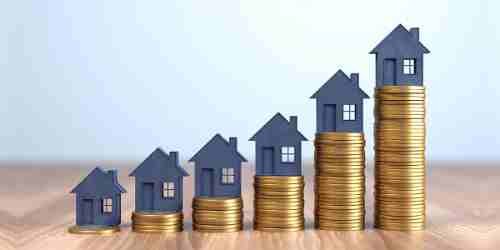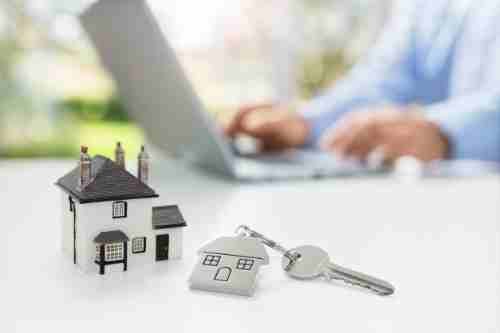A house purchase. It’s an important life achievement that is accompanied by a variety of emotions. (Excitement? Check. Slight panic? Check!) But don’t worry. I will demonstrate how our calculator for home affordability can assist you in determining what you need to pay for your home.
I want to ensure you’re at ease about how much house you can afford before you start and start looking. The What House Can I Afford? The calculator can do exactly that. All you need to do is input the amount of your income each month into our calculator for home buying to determine a price for your home that is in line with the budget you have set.
Have you given this a go? You can tell from the outcomes that the amount of property you can purchase depends on the relation between your earnings and the mortgage.
The calculator will provide you with an estimate of what you can afford. However, you’ll have to consider mortgage prices specific to the area you’re planning to enter before making a definitive choice. An experienced real estate professional from RamseyTrusted will assist you in doing this.
Lenders in the housing industry have different criteria to determine how much mortgage you can afford on your salary. Still, they tend to offer loans that are much more than individuals can manage . . . They will be in debt for longer than they should be!
I’d like you to purchase the home you want to live in that will be one of a kind and not one that is a burden. One solution to this is to know the budget for your house purchase and adhere to your budget!
What is the maximum amount I can pay for?

The purchase of a house is a major decision that can directly impact your finances over the next 15-30 years. It is crucial to estimate your monthly expenses and income to ensure you don’t end up with a mortgage you won’t be able to repay in the future.
If you want to purchase one of our mortgage companies, our top mortgage lenders page is the best spot to find lenders.
The amount of house you can pay for will mostly depend upon the following factors:
- The loan amount, as well as your mortgage term
- Your monthly and annual gross revenue
- Total monthly debt monthly expenses. This includes car payments, child care, as well as other expenditures.
- State property taxes are paid biannually or annually based on the state in which they’re paid.
- The current mortgage rate and closing costs are different based on location.
- The Homeowner’s Association (HOA) and condo fee
Most home buyers are likely to consider taking out the conventional mortgage. They typically need an initial down payment of not less than 3 per cent of the home’s value, a credit score of 620, and an income-to-debt ratio of 36%. The monthly payment amount should be at most 28% of the purchaser’s annual income before tax.
The lenders will also consider buyers’ ability to cope with the various charges and costs upfront when buying a house, including closing costs, insurance and other fees.
Remember that there are different kinds of loans you might be eligible for, which have fewer restrictions and other benefits. Our top mortgage lender page offers reviews of various lenders that could be able to meet your needs.
What are the factors that determine how do I pay for a house? What factors determine ‘how much house I can afford?

The most important factors to consider when calculating your affordability include: 1)) your monthly earnings and 2) reserve cash to cover the closing expenses and closing costs; 3) your costs for the month; 4.) your credit score.
Income. You earn money daily, for example, your wages or investment income. Income helps you create a base for how much you can spend each month.
Cash reserves. It is the sum of cash you’ve got to pay for a downpayment and cover closing expenses. You could use savings, investments or another source.
The debt and the expenses. You could have monthly obligations like auto payments, credit cards such as student loans, food and utilities, insurance and so on.
Credit profile. Your credit score, as well as the amount of debt that you have to pay, affect the perception of a lender about the borrower. The factors that affect your credit score will determine the amount of money you can take out and what mortgage interest rate you’ll pay.
How Do You Calculate the Price of a house you can afford
To determine the amount of the house you’re willing to pay for, you only have to look up some figures. If you’re not a math person, you can keep working. I’ll guide you step-by-step. (I’ve never lost a patient!)
If you are married, ensure you and your spouse look at the results together. It is essential to remain in the same place regarding your budget and the best options in your financial situation. In the end, buying the perfect “beautiful home” is a great feeling and thrilling once you share a common idea.
In order to determine how much of a home you are able to afford, take these steps.
Remember to account for closing expenses.
Okay, you don’t need to freak about this. However, A down payment isn’t the only money you’ll require for a house. There are closing costs that you should consider.
The average closing costs average around 3-4% of the home cost.1. The lender and your real estate agent will let you know precisely what the closing expenses are, and you will be able to pay the costs on the day of closing.
The costs are crucial to the process of home buying, including:
- Appraisal fees
- Home inspections
- Charges associated with loan origination
- Credit reports
- Attorneys
- Insurance for homes
- Taxes on property
Be sure to include the closing costs in the overall budget for buying a home. If, for instance, you’re looking to purchase a house worth $200,000 multiplied by 4 per cent, you’ll receive an estimated closing cost of $8,000. You can add this amount to the 20 per cent down cost ($40,000) then the sum of money you’ll require to buy your house will be $48,000.
If you need more time to prepare to spend the extra $8,000 needed for closing costs, it’s best to delay the purchase of your first home until you’ve saved some extra cash or aim a bit lower in your price range for homes.
No matter what you decide to do, don’t let closing expenses stop you from putting together the most substantial down payment that you can. The higher the amount of your down payment, the less you’ll have to pay on your mortgage!
How much home can I pay for on my monthly salary?
Need a fast method to figure out how much home you could afford with an income of $40,000? $60,000? $100,000? Use our mortgage income calculator to examine different scenarios.
Inputting a house’s price, the amount you plan to pay, and an estimated mortgage interest rate, you can estimate what your annual or monthly earnings will require — or even what the lender could allow you to loan.
The calculator can also answer the same question from a different angle: What is the salary I require to purchase a $300,000 home? or a $400,000 home?
Do I want to purchase a home right now or in the future?
Prices for homes have experienced a bumpy ride over the past few years, and they’ve started to slow down mostly due to the rising cost of mortgages and decreasing demand from buyers. This is enough to make you consider whether this is an ideal time to purchase an apartment. It would help if you focused on your circumstances rather than worrying about the real estate market overall or forecasts for the future. Do you have a good credit score? And is your debt-to-income ratio easily manageable? Can you save enough to ensure your down payment doesn’t take your account balance down to nothing? If your financial situation is well-organized and you have a good credit score, then a bank can offer the most favourable deal on the interest rate. It’s not all about cash, however. Consider what’s in the coming days for you. Are you able to plant roots shortly? The longer you stay in your house, the easier it is to justify closing costs associated with the loan and move your possessions — and the greater equity you’ll have to accumulate.
